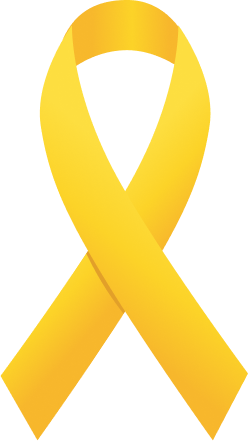
By Lenore Walker and Danielle Sobkin
This Yom HaShoah, as sirens sound and candles flicker in remembrance, we write together – two Jewish women, one 82 years old and one 21, separated by six decades of lived experience yet united by a shared truth: memory is not simply what we inherit, it is what we choose to carry forward.
Memory is not simply what we inherit, it is what we choose to carry forward.
One of us was born in the aftermath of the Shoah, into a world still raw with silence and grief. Survivors were part of everyday life – present in synagogues, neighborhoods, and family circles. They rarely spoke in detail, but their presence was its own kind of testimony. The trauma they bore quietly shaped entire communities and generations.
The other one of us came of age in a world where the Holocaust risks becoming another entry in a history textbook, reduced to statistics or abstract lessons. But it also became startlingly real – through online antisemitism, through protests where swastikas have reappeared, through the resurgence of conspiracy theories and Holocaust denial spreading with unprecedented speed.
Together, we are members of the Voice of the People Council, a global initiative launched by Israeli President Isaac Herzog to bring together Jewish voices from across generations, geographies, and perspectives. It is a space not only for dialogue, but for purpose – an effort to think seriously and collaboratively about the future of the Jewish people. When discussing our mission, considered how Holocaust memory can be passed forward – not only as a historical obligation, but as a living, moral compass for the generations to come.
That question has never felt more urgent. With survivors aging and antisemitism intensifying worldwide, remembrance cannot be confined to once-a-year ceremonies or symbolic gestures. It must be active, ongoing, and deeply rooted in Jewish identity.
We believe that Holocaust memory is not simply about looking back. It is about using the past to inform how we live today and how we shape the future. It is about ensuring that the lessons of the Shoah are not just recited but internalized. That we remember not only the horror, but the humanity. Not only what was destroyed, but what has been rebuilt – and must still be protected.
Holocaust memory is not simply about looking back. It is about using the past to inform how we live today and how we shape the future.
Each generation holds a different piece of this truth. Older generations carry direct connections to survivors and firsthand understanding of their silence and strength. Younger generations must now translate those memories into a modern language – through education, through art, through activism, through digital platforms – without losing their integrity.
We’ve seen what happens when memory is lost. When campuses erupt with slogans that erase Jewish suffering. When people claim the Holocaust was exaggerated – or worse, justified. When ignorance, indifference, and distortion fill the vacuum left by fading testimony.
We’ve seen what happens when memory is lost. When campuses erupt with slogans that erase Jewish suffering.
And we’ve also seen what happens when memory is honored. When young Jews proudly tell their family stories. When non-Jews study and speak out. When survivors’ voices are recorded, amplified, and shared across borders and languages. When remembering becomes an act of resistance – and resilience.
We therefore write, together, with request and a promise.
A request: that younger generations take up this torch willingly. That they see Holocaust memory not as a burden of trauma, but as a legacy of courage. That they tell the stories even when it’s hard. That they refuse to let silence, distortion, or fear define Jewish memory again.
And a promise: that we, across generations, will not let the chain break. That we will continue to listen, to teach, and to speak out. That we will wear our Jewishness with strength and with pride. That we will not allow “Never Again” to become an empty phrase.
The story of the Holocaust does not end with death. It continues through the lives of those who chose to rebuild. Through the descendants who remember. Through every generation that says: we are still here.
From generation to generation, we hand off this responsibility not as a weight, but as a light.
The world has changed. Hate has changed. But the need to remember – and to act on that memory – has not. From generation to generation, we hand off this responsibility not as a weight, but as a light.
This Yom HaShoah, we remember.
And we promise.
Publish date: May 27th
By: Lenore Walker and Danielle Sobkin




By clicking “Accept All Cookies”, you agree to the storing of cookies on your device to enhance site navigation, analyze site usage, and assist in our marketing efforts.